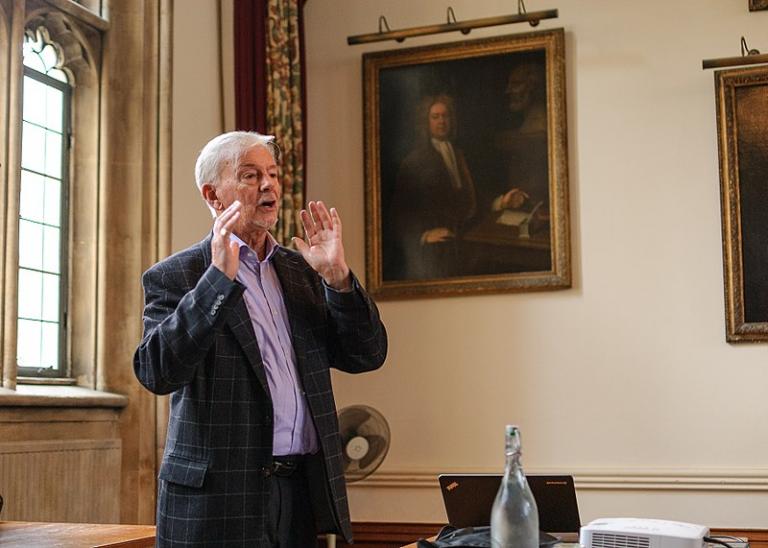
Keith Ward, Why There Almost Certainly Is a God: Doubting Dawkins (Oxford: Lion, 2008), 16-17:
When we come to consciousness, things get much worse. The problem of consciousness is so difficult that no one has any idea of how to begin to tackle it, scientifically. What is that problem? It is basically the problem of how conscious states — thoughts, feelings, sensations and perceptions — can arise from complex physical brain-states. Even if we are sure that they do arise from brains, we do not know the sorts of connections that conscious states (such as ‘seeing a train’) have with brain-states (such as ‘there is electrical activity at point A in the brain’). We do not know if conscious states can have a causal effect on brain-states, or if they are somehow reducible to brain-states in some way that we cannot yet explain.
If Dawkins was a radical materialist, he would state, like his philosophical friend and ally Daniel Dennett, that conscious states are ‘nothing more than’ brain-states and brain-behaviour. Dennett wrote a book called Consciousness Explained, in which he defended this radical theory. Most competent philosophers were unconvinced, and privately referred to his book as ‘Consciousness Explained Away’.
The main reason they were unconvinced is that you could very easily have brain-states and behaviour without any conscious states at all. Nobody can observe anyone else’s conscious states, and we cannot really be sure that anyone else has any conscious states at all.
The philosopher A. J. Ayer, who was one of the people who tried to teach me philosophy, used to say in seminars that he could not be sure that other people around him had any minds with thoughts in them at all. We did our best to confirm his suspicions. Most of us, however, accept that other people are often thinking, even though we can have no idea of what is going through their minds.
We could attach them to a brain-scanner or put electrodes in their skulls, and record electrical activity and chemical interactions in the brain. But to find out what they are thinking when we do this, we have to ask them. We have not yet got to the stage where we can just attach someone’s brain to a recording device and examine their thoughts without asking them to write examination papers, just by measuring electrical activity in their brain.
***
I was pleased to discover this brief Church video just a few minutes ago:
“Work the Proof: A Scientist Examines God”
Kevin Livingstone married one of my favorite former students, who served for a while as my teaching assistant.












